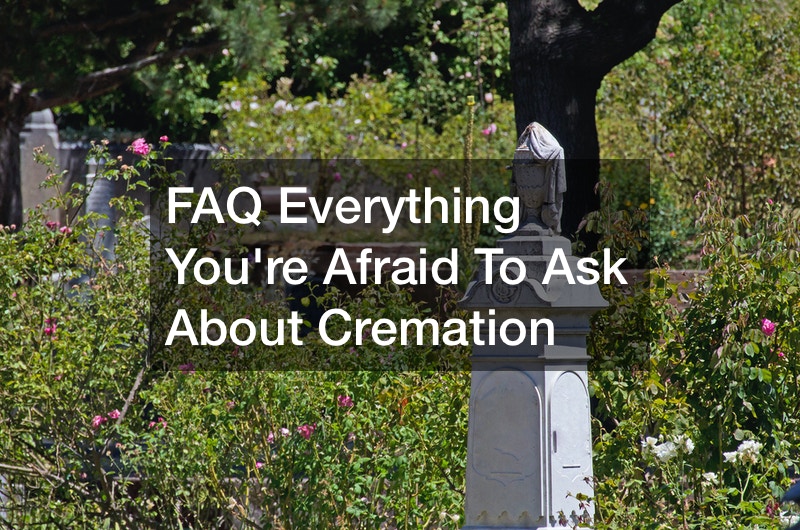
If you have a loved one who wanted to be cremated after they passed, you need to find a good cremation professional to do the job. Most funeral homes have a way for people to be cremated, and it’s often a third party that does it. If you are looking for a discount cremation, you can call around to local funeral homes and crematories and ask about the pricing. Often the budget is small after a death, and saving money can be important so that a nice funeral can be held for friends and family members. The cost of getting cremated doesn’t have to be so high that you can’t hold a funeral for everyone.
With ashes and urns, there are different ways that you can use them. Some people want their ashes to be scattered at a place that was important to them. The cremation arrangements may call for the ashes to be kept in an urn in someone’s home. Or, the urn can be interred at a cemetery. It’s a good idea to find out if the person had a living will or any directives about what they would like done with their ashes so that their wishes can be followed.
If you’re considering cremation for yourself or a loved one, you might have questions you feel uncomfortable asking. But if you want to have the best experience possible, it is important that you ask these questions. Asking about things like basic cremation services and the cheapest way to get cremated can actually help save your loved ones stress once you’ve passed away. They’ll be able to save money while also knowing that this is what you wanted. You might also ask about cremation caskets or burial urns for humans. There are a lot of different options for what to do with human ashes after the cremation and you might not be aware of all of your options. By getting all of your information ahead of time, you can have the sendoff you want without adding more stress to an emotional time.
There may also be multiple options to buy urn near me, so you don’t necessarily need to go with what the funeral home offers. If you want a different kind of urn, you can shop around some and see if there is anything better that you can buy.

As cremation urns for ashes become a common feature in a majority of U.S. funerals, new services are spreading across the country offering new memorial options for those suffering from grief. Even though death is a natural part of life, many people are afraid to ask even basic questions about cremation and funerals.
What happens during cremation?
During cremation, the remains are exposed to temperatures of about 2,000 degrees Fahrenheit until nothing but ash remains. The ashes are then placed into cremation urns for ashes and given to the family for scattering, burial, or display during funeral services.
How will I know what kind of ash containers can I choose?
General guidelines suggest that if your loved one weighed 150 pounds then you should select ash containers that hold 150 cubic inches or more. Otherwise, cremation urns for ashes come in a variety of styles and designs to suit anyone’s wishes.
For instance, many people choose to receive remains in scattering urns to spread ashes in a place of special significance. Others request that their families choose biodegradable cremation urns for eco-friendly burials. Still, others display urns in their home. For many families, affordable cremation urns offer a dignified alternative to hugely expensive caskets and embalming.
I’m planning a cremation, what cremation advice can you offer?
Planning a memorial is always a difficult, emotional task. Fortunately, cremation allows for flexible memorial planning. Some people choose to receive all the remains in a burial urn, while some choose memorial keepsakes such as cremation ash jewelry or urn pendants that hold a tiny portion of ashes (often just a quarter of a cubic inch).
How common is cremation?
In 2011, 42% of U.S. funerals involved cremation, according to the National Funeral Directors Association. By 2017, the NFDA believes that number could be as high as 56%. Cremation urns for ashes will soon become more common that traditional caskets.
There is a great taboo in American culture against talking about death, which often makes grief even more painful and lonely to bear. Please talk to friends and family about their experiences planning memorials and burials for their loved ones. You might be surprised by how much support they will be willing to offer you.

